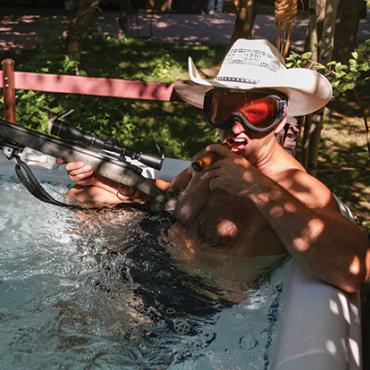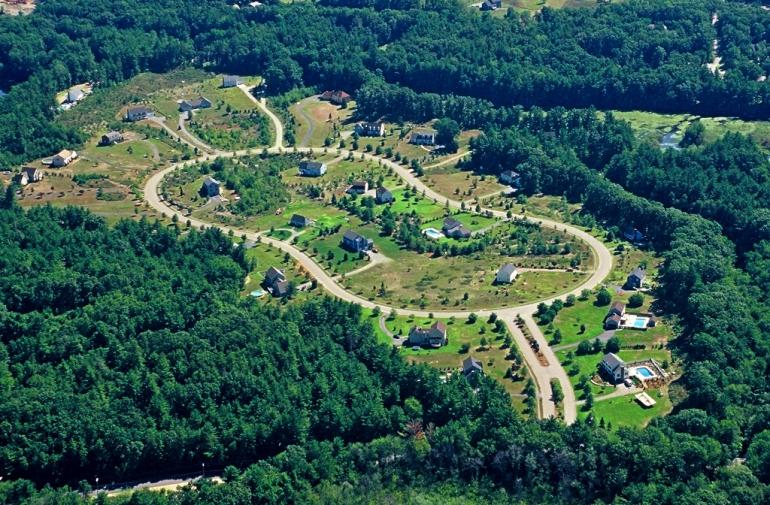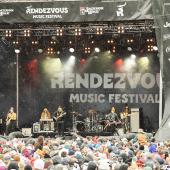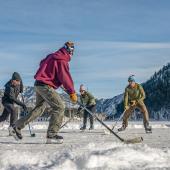The Real Poachers
The law locks up the man or woman
Who steals the goose from off the common,
But lets the greater felon loose
Who steals the common from the goose.
—Anonymous
Montana towns have always enjoyed a unique and enviable social character—sophisticated yet unpretentious, civilized yet grounded, urbane yet pragmatic. Maybe it’s the mountains, or the wide-open country, but somehow we’ve remained connected to each other and to the land around us, and therefore more instinctively aware of who we are as humans. Consequently, we’re better able to deal with our species’ inherent duplicity, to balance instinct with cultivation. We’re able to embrace the reality of our animal existence while still appreciating the finer things in life. We are fishermen and fine-diners, hikers and music lovers, hunters and opera aficionados. There aren’t too many places where you can shoot gophers all day and then hit the symphony.
But there’s one characteristic we share with all our countrymen, one weakness we can’t escape: we’re prisoners to certain ways of thinking. Take the quatrain above, for example. A poacher who bags a lone buck out of season gets fined, locked up, and scorned by society (and rightly so)—but what happens to the developer who puts a trophy-home subdivision on the banks of the Gallatin? The latter destroys hundreds of acres of habitat, uproots trees and animal dens, and sends ravaging ripples through the entire ecosystem—all to make second- or third-homes for a few gluttonous humans. While the poacher pays dearly, the developer just sits back and counts his money.
All this takes on particular relevance during hunting season. The occasional illegal killing, though certainly wrong, is not going to decimate our wildlife populations. But what will happen to our oldest autumnal activity when the river is lined on both sides with houses? Where will we put our tree stands when all the cottonwoods have been cleared? Where will we sit on those brisk December mornings, our dogs beside us, anxiously awaiting the distant honking of incoming geese? Some birds will still land, no doubt—mallards, for example, have no particular aversion to houses—but we’ll have to watch from the road, reminiscing about the good old days when we could put our duck blinds where we pleased.
We don’t know about you, but we’re not quite ready to give up our treasured fall pastime—and our cherished Montana lifestyle—to a bunch of myopic money-grubbers who could care less about our hunting opportunities. We sure don’t intend to let them steal the common from the goose—or from anything or anyone else. And we’re not going to listen to any crap about how it’s all in our best interest, how it supports the economy and creates jobs. Around here, we work to finance our free time—so what good’s the job if the pastime no longer exists?
This fall season (this election season), try re-considering what you’ve been conditioned to think for so many years—that the destruction of wildlife habitat around Bozeman is all part of the greater good. Sift through your pre-defined thought patterns and expose the rhetoric for what it most often is—insatiable greed, political paybacks, and fatcat propaganda. When you take the money out of the equation, it’s amazing how the answers change. As you stroll the river in search of game, think about who the real threats are to our state’s wildlife and to our continued ability to hunt. We’re pretty sure it’s not the poachers.














